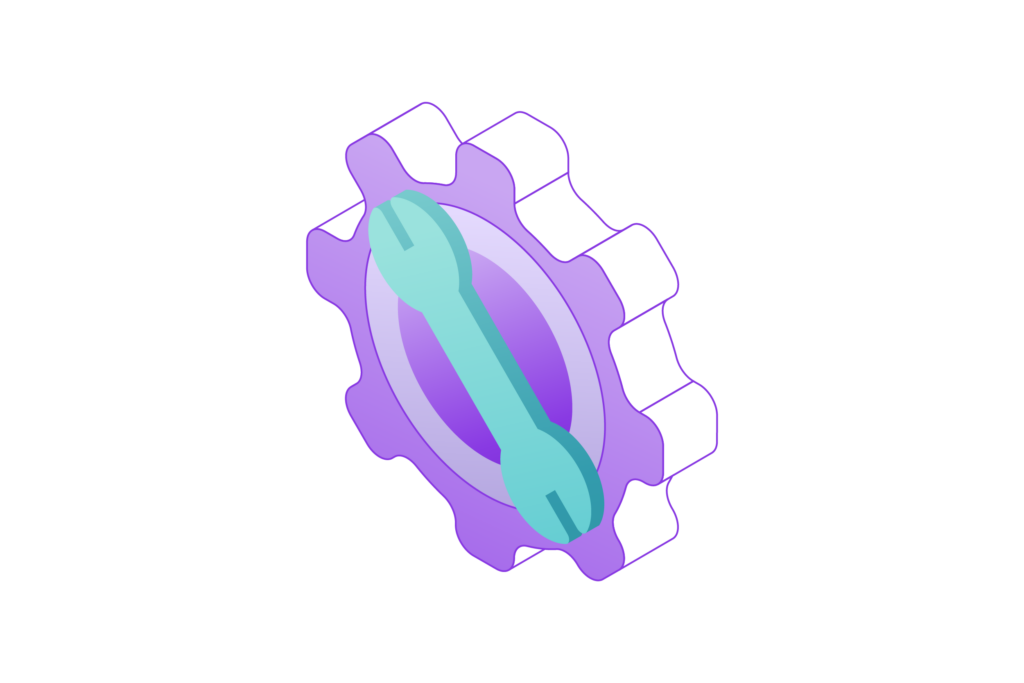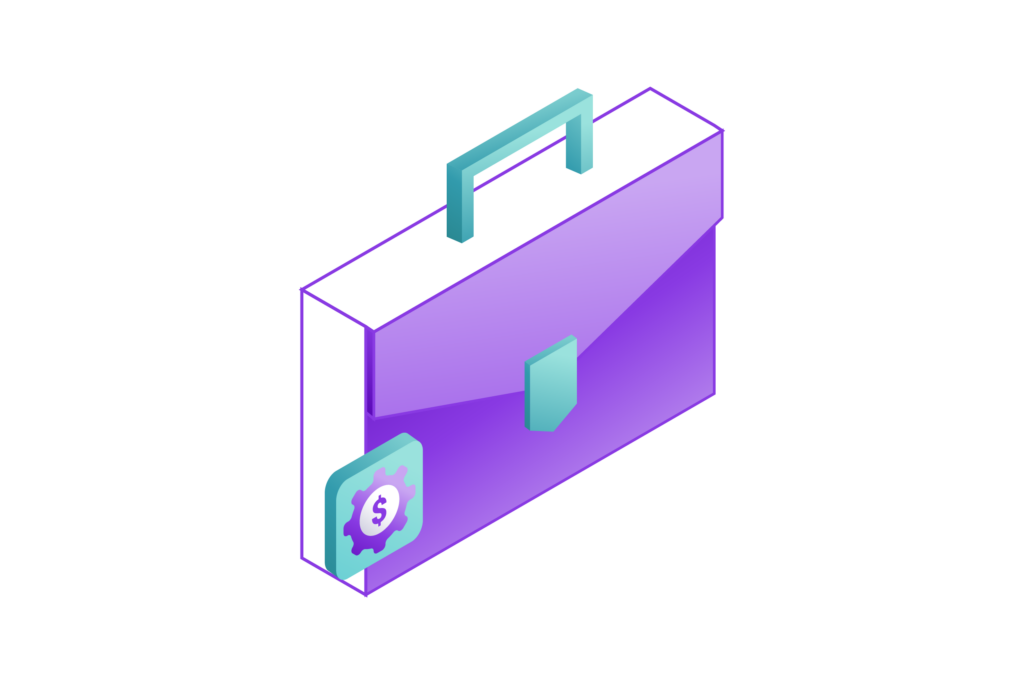
A quantitative developer, often called a “quant developer,” is a specialist who builds financial models, trading systems, and risk management tools using programming and mathematical techniques. These professionals work in investment banks, hedge funds, and financial technology firms, helping traders and analysts make data-driven decisions.
Quantitative developers combine finance, mathematics, and coding skills to develop algorithms that analyze market data, automate trading, and optimize financial strategies. Their work ensures that firms can process vast amounts of financial information quickly and accurately.
With the increasing reliance on automation and artificial intelligence in finance, the demand for quant developers has grown significantly. This role offers exciting career opportunities, but it also requires a strong foundation in programming, data analysis, and financial theory.
What is a Quantitative Developer?

A quantitative developer is a financial technology expert who builds software solutions to analyze financial markets, develop trading algorithms, and manage risk. Their role is crucial in modern finance, where firms rely on automation to execute trades and process market data.
Key Responsibilities
- Developing trading algorithms – Writing code that automates the buying and selling of assets based on mathematical models.
- Building risk management tools – Creating software that helps firms assess and mitigate financial risks.
- Optimizing trading strategies – Improving existing financial models to maximize profitability and minimize errors.
- Working with large datasets – Processing vast amounts of market data to identify patterns and opportunities.
- Collaborating with traders and analysts – Ensuring that trading systems align with business goals and market conditions.
Quantitative developers play a key role in making trading faster and more efficient. Their work helps firms gain a competitive edge in the financial markets.
Also Read: Why a Masters in Finance Won’t Make You a Quant Trader?
Skills Required to Become a Quantitative Developer

Becoming a successful quantitative developer requires a combination of technical, analytical, and financial skills. Since this role involves working at the intersection of finance and technology, professionals in this field must have strong problem-solving abilities, attention to detail, and the ability to adapt to changing market conditions. Below are the most essential skills needed to succeed as a quantitative developer:
1. Programming Skills
Programming is one of the core competencies for quantitative developers, as they need to build, test, and optimize financial models and trading algorithms. The most widely used programming languages in this field include:
- Python – A popular language for data analysis, machine learning, and algorithmic trading due to its extensive libraries, such as Pandas, NumPy, and TensorFlow.
- C++ – Often used for high-frequency trading (HFT) because of its speed and low-latency performance.
- Java – Frequently used in banking and enterprise-level financial applications.
- SQL – Essential for handling and managing financial databases, which store vast amounts of historical and real-time market data.
Since the financial industry is highly data-driven, a quantitative developer must be comfortable writing efficient code, debugging errors, and optimizing software performance to ensure smooth execution of trading strategies.
2. Mathematics and Statistics
A strong foundation in mathematics and statistics is crucial for developing accurate financial models. The key mathematical concepts that quant developers rely on include:
- Linear Algebra – Used in portfolio optimization, risk assessment, and machine learning models.
- Calculus – Helps in pricing derivatives and understanding the behavior of financial instruments.
- Probability and Statistics – Essential for risk management, market predictions, and modeling stock price movements.
- Stochastic Processes – Applied in modeling random market fluctuations and designing quantitative strategies.
Mathematical accuracy is critical in finance, where even small errors in calculations can lead to significant financial losses.
3. Financial Knowledge
While programming and math skills are essential, understanding financial markets is equally important. A quantitative developer must have a deep understanding of:
- Financial Instruments – Stocks, bonds, options, futures, and other derivatives.
- Market Microstructure – How financial markets operate, including order book dynamics and trading mechanisms.
- Trading Strategies – Algorithmic trading, arbitrage, mean reversion, and momentum trading.
- Risk Management – Methods to measure and mitigate financial risk, such as Value-at-Risk (VaR) and Monte Carlo simulations.
A solid grasp of financial concepts helps quant developers build models that align with market conditions and investor objectives.
4. Data Analysis and Machine Learning
Quantitative developers work with large datasets, making data analysis and machine learning valuable skills in this field. The ability to extract insights from financial data helps in building predictive models and improving trading strategies. Key areas include:
- Time Series Analysis – Used to analyze historical price movements and predict future trends.
- Regression Models – Helps in identifying relationships between financial variables.
- Neural Networks – Applied in deep learning for pattern recognition and automated trading.
- Natural Language Processing (NLP) – Used to analyze financial news, earnings reports, and market sentiment.
As financial firms integrate artificial intelligence into trading strategies, machine learning expertise is becoming a valuable asset for quantitative developers.
5. Problem-Solving and Attention to Detail
The financial industry is complex, and even small mistakes in a model can have significant consequences. A quantitative developer must:
- Identify and fix bugs – Debugging code is a critical part of the job to ensure that financial models operate as expected.
- Optimize algorithms – Efficient models can process data faster, reducing latency in trading execution.
- Adapt to market changes – Financial markets evolve rapidly, and developers must continuously update their models to maintain accuracy.
- Think critically – Problem-solving skills help developers tackle unexpected challenges, such as market volatility or system failures.
The ability to work under pressure and deliver precise, error-free solutions is crucial in this field.
6. Strong Communication and Teamwork Skills
Although the role of a quantitative developer is technical, communication is still an important skill. Developers must collaborate with traders, analysts, risk managers, and executives to understand business needs and translate them into functional trading systems. Key aspects include:
- Explaining complex models in simple terms – Not everyone in finance has a technical background, so clear communication is important.
- Working in teams – Most financial firms operate in collaborative environments where developers, analysts, and traders work together.
- Documenting code and processes – Proper documentation ensures that other team members can understand and maintain the systems.
Since financial technology teams often work on high-stakes projects, effective collaboration helps ensure that trading strategies are both profitable and technically sound.
7. Knowledge of Financial Regulations
Financial firms operate under strict regulations to ensure fair trading and prevent market manipulation. Quantitative developers must be aware of:
- SEC and CFTC regulations (U.S.) – Governing trading practices and market transparency.
- Basel III Framework – Risk management standards for banks.
- MiFID II (Europe) – Guidelines for financial market integrity.
Compliance with financial laws ensures that trading algorithms follow legal guidelines and do not expose firms to regulatory risks.
8. Cloud Computing and Distributed Systems
As financial firms process massive amounts of data, cloud computing and distributed systems knowledge can be beneficial. Skills in:
- AWS, Google Cloud, or Microsoft Azure – Cloud platforms used for scalable financial computations.
- Hadoop and Spark – Tools for handling big data processing in finance.
- Parallel Computing – Used in high-frequency trading to execute multiple operations simultaneously.
With the rise of cloud-based financial infrastructure, knowing how to leverage these technologies can make a quantitative developer more valuable to employers.
9. Version Control and Software Development Best Practices
Since quantitative developers write a significant amount of code, understanding software development best practices is essential. This includes:
- Git and GitHub – For version control and collaborative coding.
- Unit Testing – Ensures that financial models function correctly before deployment.
- Agile Development – Many financial firms follow agile methodologies to improve software development efficiency.
Following best practices helps maintain code quality and ensures that trading systems remain reliable.
A successful quantitative developer must possess a well-rounded skill set that includes programming, mathematics, finance, data analysis, and problem-solving. With the financial industry evolving rapidly, staying updated with the latest technologies, regulations, and market trends is essential for long-term success in this field.
Those who invest in building these skills can unlock exciting career opportunities in investment banks, hedge funds, and fintech firms, contributing to the development of advanced trading algorithms and risk management systems.
Career Path and Salary Expectations

A career as a quantitative developer follows a structured progression, with opportunities to move from entry-level roles to senior positions with increased responsibilities and higher compensation. Below is an overview of the typical career path:
Entry-Level Roles
At the beginning of their careers, professionals work on financial models and assist senior developers with coding and implementation. These roles include:
| Job Title | Responsibilities | Average Salary |
| Quantitative Analyst | Works with financial models, cleans data, and assists senior quants. | $80,000 – $120,000 |
| Junior Quant Developer | Focuses on coding trading algorithms and maintaining financial applications. | $80,000 – $120,000 |
Mid-Level Roles
With experience, professionals take on more responsibility in developing and optimizing financial models.
| Job Title | Responsibilities | Average Salary |
| Quantitative Developer | Independently develops and enhances trading algorithms. | $120,000 – $200,000 |
| Algorithmic Trader | Uses quantitative models to execute automated trades. | $120,000 – $200,000 |
Senior-Level Roles
Senior professionals lead teams, research new trading strategies, and oversee risk management.
| Job Title | Responsibilities | Average Salary |
| Lead Quant Developer | Manages a team of developers and oversees algorithm development. | $200,000+ |
| Quantitative Researcher | Develops new trading strategies and improves existing models. | $200,000+ |
Salary Expectations
Salaries for quantitative developers depend on factors such as experience, location, and the type of financial institution. Bonuses and profit-sharing can significantly increase total compensation.
- Entry-level: $80,000 – $120,000 per year
- Mid-level: $120,000 – $200,000 per year
- Senior-level: $200,000+ per year (including bonuses and profit-sharing)
As financial markets rely more on automation, the demand for quantitative developers continues to grow, offering strong career growth and high earning potential.
How to Become a Quantitative Developer
If you’re interested in this career, here’s a step-by-step guide to becoming a quantitative developer:
1. Earn a Relevant Degree
A strong academic background is essential. Most quant developers have degrees in:
- Computer Science
- Mathematics
- Engineering
- Finance or Economics (with a focus on quantitative methods)
2. Learn Programming
Mastering programming is essential for a quantitative developer, as coding is the foundation of building financial models and trading algorithms. Focus on learning languages like Python, C++, and SQL, as they are widely used in the finance industry. Python is particularly valuable for data analysis and machine learning, while C++ is preferred for high-speed trading applications. Practical experience through hands-on coding projects and algorithm development is more beneficial than just studying theoretical concepts.
3. Gain Financial Knowledge
Understanding how financial markets operate is crucial for developing effective trading strategies and risk management models. Learn about different financial instruments such as stocks, bonds, derivatives, and options, as well as market structures and trading mechanisms. Books, online courses, and certifications like CFA (Chartered Financial Analyst) or FRM (Financial Risk Manager) can help deepen financial expertise. A strong financial background allows quantitative developers to create models that align with real-world market conditions.
4. Work on Projects
Building personal projects is one of the best ways to gain practical experience and showcase skills to potential employers. Projects like developing a trading bot, backtesting a trading strategy, or analyzing financial data can demonstrate coding abilities and problem-solving skills. Open-source contributions and personal coding challenges also help strengthen technical knowledge. Employers value candidates who can apply their knowledge to real-world scenarios rather than just theoretical concepts.
5. Get Industry Experience
Internships and entry-level positions in financial firms provide invaluable hands-on experience working with real market data and trading systems. Gaining exposure to industry practices helps bridge the gap between academic knowledge and practical application. Working alongside experienced professionals allows newcomers to learn best practices, risk management techniques, and trading strategy optimization. Many successful quantitative developers start their careers by working as junior analysts or research assistants in financial institutions.
6. Keep Learning
The financial and technology sectors are constantly evolving, so continuous learning is essential for staying competitive in the industry. Keep up with new trading strategies, machine learning advancements, and financial regulations by reading research papers, attending webinars, and participating in industry forums. Enrolling in advanced courses on quantitative finance, artificial intelligence, or high-frequency trading can enhance expertise. Staying adaptable and open to learning ensures long-term career growth and success in the field.
Also Read: 10 Best Quantitative Trading Firms in Singapore in 2025
Challenges in the Quantitative Developer Role
A career as a quantitative developer offers exciting opportunities, but it also comes with its own set of challenges. The role requires a combination of technical expertise, financial knowledge, and the ability to work under pressure. As financial markets evolve, quant developers must continuously adapt to new technologies, regulations, and market conditions. Below are some of the biggest challenges faced in this field.
- High Pressure – Financial markets move fast, and developers must ensure systems run smoothly with minimal downtime.
- Complexity – Developing accurate and efficient models requires deep expertise in multiple disciplines.
- Regulatory Compliance – Financial firms must adhere to strict rules, which can impact how models are designed and implemented.
- Competition – The field is highly competitive, and staying ahead requires continuous learning and skill development.
Despite these challenges, being a quantitative developer can be an incredibly rewarding career. The role offers high earning potential, intellectual stimulation, and the chance to work on cutting-edge financial technology. Those who are willing to embrace the demands of the job and continuously improve their skills can build a successful and fulfilling career in this dynamic field.
Conclusion
Quantitative developers play a crucial role in the finance industry by designing and implementing trading algorithms, risk management systems, and data analysis tools. Their work helps financial firms make better investment decisions and improve market efficiency.
To become a quant developer, one needs strong programming, mathematics, and financial knowledge. A relevant degree, coding expertise, and hands-on experience with financial data are essential for entering this field.
With financial markets becoming more automated, the demand for skilled quantitative developers continues to grow. Those who invest time in learning and gaining experience can build a successful and well-paying career in this exciting industry.
Disclaimer: The information provided by Quant Matter in this article is intended for general informational purposes and does not reflect the company’s opinion. It is not intended as investment advice or a recommendation. Readers are strongly advised to conduct their own thorough research and consult with a qualified financial advisor before making any financial decisions.

I'm Carina, a passionate crypto trader, analyst, and enthusiast. With years of experience in the thrilling world of cryptocurrency, I have dedicated my time to understanding the complexities and trends of this ever-evolving industry.
Through my expertise, I strive to empower individuals with the knowledge and tools they need to navigate the exciting realm of digital assets. Whether you're a seasoned investor or a curious beginner, I'm here to share valuable insights, practical tips, and comprehensive analyses to help you make informed decisions in the crypto space.
- Carinahttps://quantmatter.com/author/carina/
- Carinahttps://quantmatter.com/author/carina/
- Carinahttps://quantmatter.com/author/carina/
- Carinahttps://quantmatter.com/author/carina/
